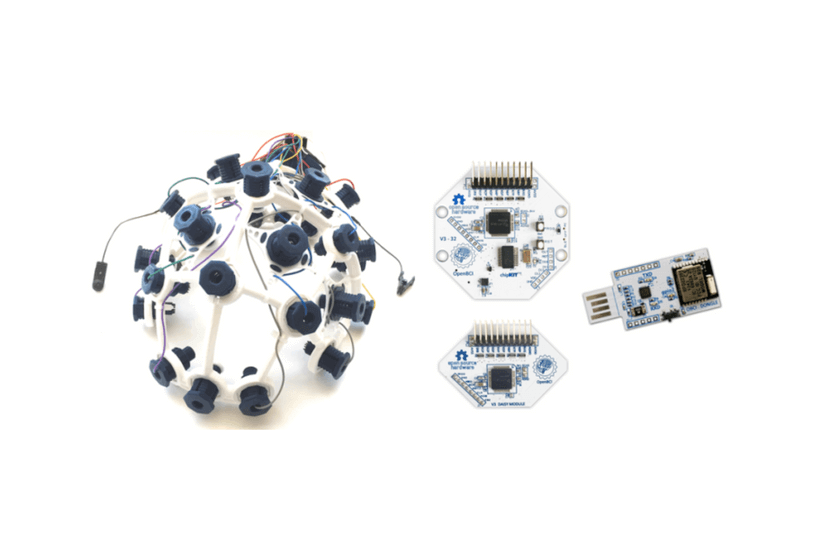A team of seven undergraduate students from the James A. Clark School of Engineering at the University of Maryland (UMD) has invented a diagnostic tool capable of diagnosing Alzheimer’s disease before the symptoms show, which could revolutionize healthcare for patients with Alzheimer’s.
Alzheimer’s disease is the sixth leading cause of death in the U.S. today, killing more people each year than breast and prostate cancer combined, but current methods of diagnosing the disease are deficient. PET scans, MRIs and spinal taps are costly and invasive at times so these methods are often used only after patients display clear symptoms of the disease, which means it could sometimes take as long as two years for them to receive the proper diagnosis. By then, the disease would often have spread and made the patient’s condition much worse.
It’s fortunate therefore that the UMD team — known as “Synapto” — has come up with a cheaper and more effective solution. The team has created a portable electroencephalogram (EEG) that detects dementia symptoms, before these symptoms show, through the combination of a headset and a tool for mathematical software analysis. It utilizes the changes in the brainwaves of patients as they respond to specific auditory tones. These results are then compared to the brainwaves of healthy people using the same analytical tools.
In creating the device, the team seeks to make the process of diagnosing dementia more quantitative and systematic while lowering the costs. The team believes that the new technology will allow doctors to use it as a diagnostic tool at annual physicals.
“Diagnosing the disease early on allows patients to open up treatment options, manage the disease properly, and slow its progression,” Dhruv Patel, UMD Fischell Department of Bioengineering (BIOE) undergraduate and Synapto team captain, said in a statement.
The other six students on the Synapto team are: BIOE students David Boegner, Megha Guggari, Chris Look (a computer science double-major), and Anoop Patel; and Department of Chemical and Biomolecular Engineering students Megan Forte and Brianna Sheard.
Synapto was organized by the UMD student chapter of the Biomedical Engineering Society, led by the Biomedical Engineering Society-UMD executive board, and supported by faculty advisor Steven Jay, a BIOE assistant professor. The team members obtained the initial hardware for the project from William (Bill) Idsardi, chair of UMD’s Department of Linguistics, which made it possible for them to speed up their development process.
The Snyapto team came first at this year’s Design by Biomedical Undergraduate Teams (DEBUT) Challenge, winning the $20,000 first prize award. The DEBUT Challenge was created by the National Institute of Biomedical Imaging and Bioengineering to celebrate undergraduates who excel in the areas of biomedical design and innovation.
The team will be formally recognized at the annual Biomedical Engineering Society conference in Phoenix on October 12 along with this year’s other winners.
Darryll J. Pines, dean and the Nariman Farvardin Professor of Aerospace Engineering at the Clark School of Engineering, recognizes the importance of Synapto’s technology for Alzheimer’s.
“Today, more than 5 million Americans are living with Alzheimer’s and that number is expected to rise significantly in the coming decades,” he said. “Synapto’s device could one day advance the body of knowledge about this pernicious disease by allowing doctors to identify Alzheimer’s early in the course of progression.”
Pines has high hopes for the future of Alzheimer’s diagnoses after seeing what his students have accomplished.
“Synapto’s device represents a powerful first step towards revolutionizing how Alzheimer’s and other diseases are diagnosed,” he said. “As sophomores, these students are already collaborating with companies and institutions around the world to improve diagnostic accuracy and overall efficiency of their device in efforts to target exploratory clinical trials in the coming years.”
Pines concludes with a particularly positive sentiment about the Synapto members: “In many ways, they represent the future of biomedical innovation, and I look forward to following their continued success in the years to come.”



